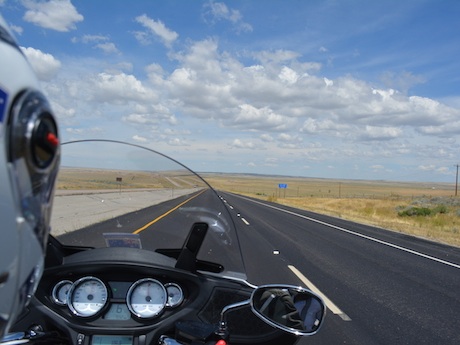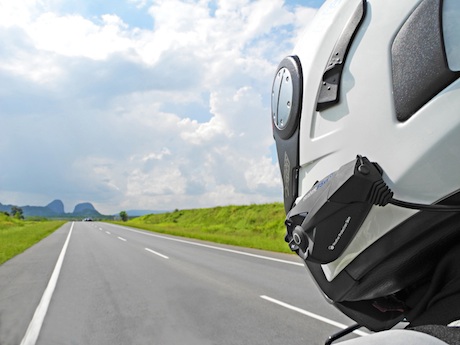Fatigue is identified as one of the “fatal five” causes of accidents responsible for as much as 20% of all crashes. Yet there is very little police effort in clamping down on fatigued motorists.
Instead, we have to monitor our own level of fatigue.
I admit to having ridden tired, yet I don’t think I could fall asleep. There is just too much happening that keeps you awake. There’s changing gears, balancing the bike, counter-steering, hand and foot brakes. There’s also the wind slapping you in the face, the noise keeping you awake and the short-range fuel tank that requires you to pull over every few hundred kilometres.
Fatigue is a much bigger problem among car and truck drivers who have longer-range fuel tanks and can do longer stints behind the wheel. They also have much more comfortable and soporific cabins with big lounge chairs to sit in, quiet confines, nice audio systems and driver aids such as automatic transmissions and cruises control.
Yet motorcycle riders do fall asleep and their accidents have been well documented. In one case, police in the US believe a rider had been asleep for some time and his bike kept going along the highway for a couple of miles before he fell off.
So, since we have to monitor our own fatigue, here are 10 tips to help you stay awake while on a long ride.
- ROUTE: Pick a more interesting route than the highway. Take back roads and winding routes that require more mental input, more steering, more gear changes and more brake applications. They also negate the use of cruise control, if you happen to have it on your bike.
Avoid straight highway - PLAN: Don’t just plan your route; plan your stops as well. Don’t make unrealistic distance goals. Also, be aware that some riders within your group may not have the same stamina as the others, so allocate stops to cater for the most vulnerable rider.
- SLEEP: Before the ride, make sure you get adequate sleep the night before. If it’s a ride over several days, suggest to your fellow riders that they turn in at a reasonable hour rather than staying up drinking into the early hours of the morning. It will not only affect their safety, but also yours. And set a realistic departure time in the morning. Not too early.
-
DRINK: Drink plenty of water. It will prevent you becoming dehydrated from exposure to the wind. Dehydration can lead to dizziness, confusion and slower body motor skills. But avoid sugar drinks, caffeine and alcohol, which may “give you wings” to begin with, but will ultimately lead to sleepiness. Drink alcohol in moderate amounts at overnight stops as it will disturb the quality of your sleep, leaving you tired the next day.
- EAT: Eat smaller, more frequent meals and avoid carbohydrate-heavy foods. Big meals and foods high in carbohydrate, fat and sugar slow your body down while it concentrates on digesting the food.
Avoid alcohol and fatty foods - STOP: Take short stops at least every two hours. The fluids you have been taking in will mean you have to take regular toilet breaks, anyway. Take slightly longer stops between 3-5pm as this is when riders will be feeling more tired and will need longer to revitalise. In fact, try to arrive at your destination around this time.
- EXERCISE: When you stop, try to get some light exercise, even just walking up and down the street. You’ve been sitting for some time, so there is no point in sitting in a cafe.
-
Listen to music LISTEN: Some people say listening to music on a motorcycle sends them to sleep, but they must be listening to Cold Play. Try something loud and upbeat. Wind noise can also fatigue a rider, so wear earplugs and a full-face helmet. A windscreen will also reduce fatiguing wind noise. Consider getting a communication system so you can talk with other riders and pillions to keep you mentally alert.
- GROUPS: Ride in a small group. Riding solo is a recipe for losing concentration, but riding in a big group can also make you switch off. Ride in small groups and take turns leading the pack.
- PASS: Don’t sit behind vehicles. If it’s safe, pass them. The act of passing stimulates your senses. Staying behind them tends to make you focus on the back of the vehicle which is hypnotic and can send you to sleep. But don’t think high speeds will keep you awake. It is better to mix up your speeds a little to keep you alert.





